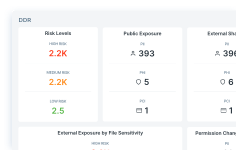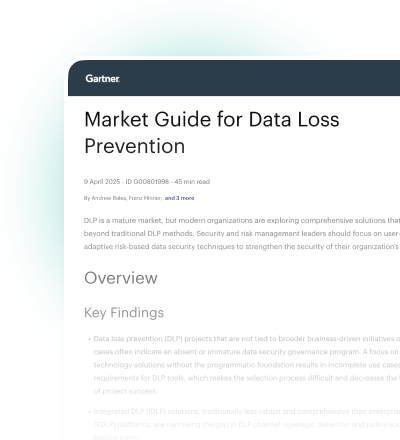
NGFW Firewall Solutions
Reduce Risk
Across the Network
Combine fast, flexible networking and industry-leading security with Forcepoint Next-Generation Firewall (NGFW).
Protect the network from advanced threats.
Forcepoint Next-Generation Enterprise Firewall delivers industry-leading network security at scale. Deploy from anywhere in the world through the Secure Management Console (SMC) and unify policy management, incident response and reporting under one console.
Explore Forcepoint NGFW Products

3500 Series
Ideal for large enterprises, campus networks and data centers.
Up to 66 interfaces
Firewall throughput up to 600 Gbps
IPS & NGFW throughput up to 140 Gbps

3400 Series
Ideal for campus networks and data centers.
Up to 67 interfaces
Firewall throughput up to 200-300 Gbps
IPS NGFW throughput up to 15-35 Gbps

2200 Series
Ideal for mid-sized and large offices.
Up to 25 interfaces
Firewall throughput up to 120 Gbps
IPS NGFW throughput up to 13.5 Gbps

1200 Series
Ideal for mid-sized and large offices.
Up to 17 interfaces
Firewall throughput up to 65 Gbps
IPS NGFW throughput up to 5 Gbps

350 Series
Ideal for remote sites and branch offices (desktop design).
Up to 13 interfaces
Firewall throughput 40 Gbps
IPS NGFW throughput 2 Gbps (N352) or 4.1 Gbps (N355)

120 Series
Ideal for brick-and-mortar locations and branch offices.
Up to 8 interfaces
Firewall throughput 4 Gbps
IPS NGFW throughput 450 Mbps

60 Series
Ideal for remote offices, branches and brick-and-mortar locations.
Up to 4 interfaces
Firewall throughput 4 Gbps
IPS NGFW throughput 700 Mbps
Forcepoint Next Generation Firewall (NGFW) Datasheet
Read more about Forcepoint NGFW specifications, including platforms, features, threat protection and integrated SD-WAN functionality.
Cloud Images:
- Unified Forcepoint NGFW software
- Amazon Web Services (AWS)
- Microsoft Azure Solutions
- Secures both north-south communication in/out of cloud and SDN east-west traffic
Virtual Appliances:
- Unified Forcepoint NGFW software
- Available for KVM and VMware ESXi and NSX
- Scales to 64 CPUs
- Automates network microsegmentation
- Can be clustered with physical firewalls


Global Network
20+
Countries
45+
Cluster Nodes
Clustering In a Way No One Else Can Do
Christian Keller, CISO at Huber + Suhner, lists reliability, clustering, and ability to navigate global compliance requirements among the top benefits of Forcepoint NGFW.
Why Forcepoint NGFW?
Centralize Management with the SMC
Manage network policies, identify and prevent security incidents in real time, and review the performance of appliances and applications through the SMC.
Protect the Network from the Unknown
Pair industry-leading security with trusted network management through zero trust network access controls, Advanced Malware Detection and Protection (AMDP), intrusion prevention and other controls.
Deploy Appliances from Anywhere
Automate, orchestrate and scale the network anywhere in the world with a broad range of physical and virtual appliance.
Customize and Scale with Modular Network Interfaces
High-end, rack-mounted Forcepoint NGFW appliances accept a range of extensible network interfaces, providing flexibility and adaptability for new network infrastructure.
Balance Network Demands and Prevent Downtime
Build strong network resiliency and scalability through load balance clustering and multi-ISP support load balancing with application-aware routing, including the ability to update software and appliances without service breaks.
Why Customers Choose Forcepoint NGFW
Why Customers Choose Forcepoint NGFW
"Our costs - both for the project and maintenance - are going down because we don't need resources locally, we have centralized everything. If we want new service on a train, we define the policy then give the hardware to the operator, who installs it."
VR Group
Stay Informed to Secure Your Network
Frequently Asked Questions
Why are next-generation enterprise firewall solutions more effective than legacy systems?
Next-gen enterprise firewall solutions go beyond basic packet filtering. They offer deep visibility into network activity, identify encrypted threats and enable consistent policy enforcement across distributed environments. Whether protecting a single site or a multinational operation, next-generation enterprise firewall solutions deliver unified security with integrated intrusion prevention, application awareness and centralised control.
What makes NGFW products essential for modern network security?
Unlike legacy firewall solutions that create blind spots or slow operations, modern NGFW products support secure SD-WAN, reduce complexity and accelerate incident response. This makes them essential not just for defending infrastructure — but for enabling agility, compliance and resilience in a threat landscape that moves fast and punishes slow movers.
Why do Hong Kong organisations need advanced firewall solutions?
Hong Kong’s regulatory climate demands agility and precision, especially in sectors affected by the Personal Data (Privacy) Ordinance, SFC guidelines and evolving cross-border data frameworks. Forcepoint’s next-generation enterprise firewall supports local and international compliance obligations without slowing operations. This helps organisations stay secure and competitive in Asia’s fast-moving, risk-aware market.
How do Forcepoint NGFW products support compliance in Hong Kong’s high-risk sectors?
Forcepoint NGFW products offer a high-performance solution with advanced traffic inspection, zero-trust enforcement and scalable deployment. As a globally-renowned next-gen firewall vendor, Forcepoint enables Hong Kong organisations — particularly in finance, legal and logistics — to secure sensitive data, reduce risk exposure and meet complex compliance standards with confidence.
What makes Forcepoint a preferred next-generation firewall vendor in Hong Kong?
Recognised in Forrester and Radicati reports, Forcepoint is one of the most trusted next-gen firewall vendors in Hong Kong. Our NGFW models streamline policy enforcement across hybrid environments, safeguard data in motion and deliver the automation and control required to replace outdated infrastructure with confidence.













